Featured Resources: 1

This self-assessment tool is intended to support stakeholders and leaders in schools, district offices, and education support organizations prioritize areas for their redesign efforts, drawing on the Design Principles for Schools playbook, by examining the extent to which the structures, systems, and practices for the principles of whole child design are in place and consistently used throughout a school.
Tools and Resources
Tools and Resources

This resource describes the Guiding Principles for Equitable Whole Child Design and its aligned structures and practices that can build learning environments that enable children to develop, learn, and thrive. It shows how schools can adopt key structures and practices that nurture each design principle while illustrating how the most powerful application of these components is to use them in integrated ways.
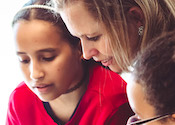
This resource describes the structures and practices that schools can use to develop students’ cognitive, social, and emotional skills, which can serve as the building blocks for academic learning. It describes how schools can integrate cognitive, social, and emotional development into learning and use instructional strategies that develop students’ productive habits and mindsets in reinforcing ways.

This resource describes how schools can cultivate learning environments where all students and school community members are physically, emotionally, and identity safe. It highlights structures and practices that help to build safe and caring classrooms and schools, including those that build consistency; are restorative, trauma-informed, and healing-oriented; and foster inclusivity.

This resource describes how schools with integrated support systems can create a coordinated web of structures that readily meet students’ holistic needs. It highlights how coherent and data-informed multi-tiered systems of support can provide a responsive continuum of interventions that gives personalized support to all students.

This resource describes how schools can foster positive relationships among school community members. It highlights structures and practices that can personalize relationships with students, support relationships among staff to build trust and collaboration, and build relationships with families to support student learning and well-being.

This resource describes rich learning experiences that practitioners can facilitate to foster learning and knowledge development. It highlights the use of pedagogical structures and practices, such as Universal Design for Learning, effective scaffolding, inquiry-based learning, and culturally responsive pedagogy, that can deepen student understanding and help them transfer knowledge and skills to new contexts and problems.
Implementation Partners
Implementation Partners
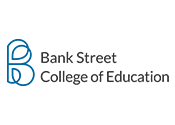
Bank Street's preparation programs ground students in principles of development, diversity, and equity. All students experience rich field-embedded experiences, which allow them to integrate theory and practice and develop reflective capacities within the context of close relationships with faculty and peers. Instructors model pedagogical approaches and provide opportunities for inquiry, analysis, and application.
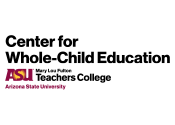
Center for Whole-Child Education (formerly Turnaround for Children) advances key insights from educator practice, scientific research, and student experience so that together we can create equitable learning environments. The Principles serve as the scientific foundation for all they do: professional learning services and tools and resources translate them into concrete systems, structures, and practices for educators and leaders to implement in learning settings nationwide.
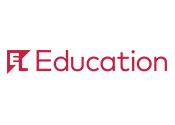
For more than 30 years, EL Education has been partnering with K–12 public schools and districts to transform learning to become character-infused, equitable, and whole child–focused—closely aligned with SoLD principles—in order to promote high achievement for all. EL also creates open source educator materials, including its acclaimed K–8 ELA curriculum, instructional videos, best-selling books, and models of beautiful student work.
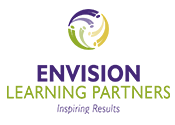
Envision Learning Partners is a nonprofit dedicated to engaging every student in a high-quality system of performance assessment. Through district leader coaching and school-based professional development, they help districts to refine their desired learning outcomes and bring those outcomes to life through the design and implementation of performance assessments (often in the form of a portfolio-defense system).
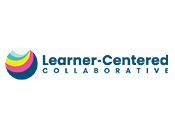
Learner-Centered Collaborative believes a learner-centered approach is foundational for a successful learning community. They envision education ecosystems that empower all learners to know who they are, thrive in community, and engage in the world as their best selves. They partner with educators to define whole-learner outcomes, design meaningful learning experiences, and enable their unique journey to inclusive and equitable learner-centered education.
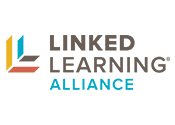
The Linked Learning Alliance leads a field of K–12 districts, postsecondary institutions, and employers dedicated to establishing accelerated, seamless learning experiences that lead to meaningful credentials and careers through a proven educational approach called Linked Learning. The approach integrates rigorous academics, real-world learning, and strong support services to prepare students for success after high school.
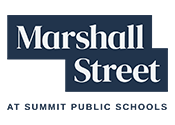
Marshall Street serves over 100,000 students annually through programs and school partnerships. They train diverse teachers and school leaders across California and the nation. They lead continuous improvement efforts with practitioners focused on advancing equity for the nation's most marginalized student communities. They share what is learned to help others create more excellent and equitable schools for our next generation.
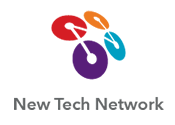
New Tech Network is a national nonprofit dedicated to systemic and equitable change in education. Partnering with districts and working closely with leadership teams makes change scalable and sustainable. New Tech Network schools—now over 200 strong—are committed to college- and career-ready outcomes, supportive and inclusive culture, meaningful and equitable instruction, and purposeful assessment.
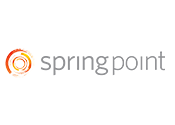
Springpoint partners with communities to transform the learning experience, reimagine high school, and empower young people to succeed. They work hand in hand with school and district leaders to build equitable and responsive high schools, bring project-based learning to life, and empower educators to lead by providing technical assistance, implementation support, hands-on guidance, mentorship and coaching, and deeply resourced materials.